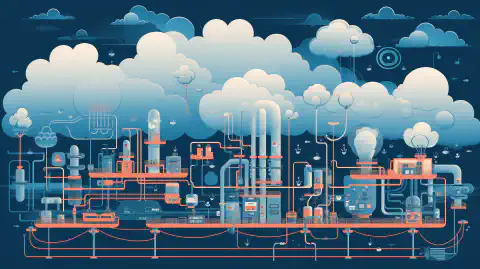Choosing the Right Database Management System: SQL vs. NoSQL

Table of Contents
Choosing the Right Database Management System: SQL vs. NoSQL
When it comes to managing data, selecting the right database management system (DBMS) is crucial for the success of any organization. Two popular options in the market are SQL (Structured Query Language) and NoSQL (Not Only SQL) databases. In this article, we will compare and contrast these two types of DBMSs to help you make an informed decision about which one is best suited for your needs.
SQL: The Traditional Relational Database Management System
SQL is a tried and tested database management system that has been around for several decades. It follows a structured and tabular data model where data is stored in rows and columns. Relational databases are known for their ACID (Atomicity, Consistency, Isolation, Durability) compliance, which ensures data integrity and consistency. SQL databases use a predefined schema that defines the structure and relationships of the data.
Some popular SQL database systems include MySQL, Oracle Database, and Microsoft SQL Server. These systems are widely used in various industries due to their reliability, robustness, and extensive support.
NoSQL: The Flexible and Scalable Alternative
NoSQL databases, on the other hand, provide a more flexible and scalable approach to data management. They are designed to handle large volumes of unstructured and semi-structured data. Unlike SQL databases, NoSQL databases do not rely on a fixed schema and can accommodate dynamic and evolving data models.
There are different types of NoSQL databases, including key-value stores, document databases, columnar databases, and graph databases. Each type is optimized for specific use cases. For instance, MongoDB is a popular document database that stores data in flexible, JSON-like documents, making it suitable for handling complex and hierarchical data structures.
Comparing SQL and NoSQL Databases
Now, let’s compare SQL and NoSQL databases based on various factors to help you understand their strengths and weaknesses.
Data Model
SQL databases follow a rigid and predefined schema, making them suitable for applications with a well-defined data structure. NoSQL databases, on the other hand, provide flexibility and can handle changing data models.
Scalability
NoSQL databases excel in horizontal scalability, allowing you to distribute data across multiple servers and handle large workloads. SQL databases can also scale vertically by upgrading hardware resources, but they may face limitations when it comes to horizontal scaling.
Query Language
SQL databases use the SQL query language, which provides a powerful and standardized way to retrieve and manipulate data. NoSQL databases use different query languages based on their type. For example, MongoDB uses the MongoDB Query Language (MQL) for document-based queries.
Performance
In terms of performance, NoSQL databases often outshine SQL databases in scenarios that require high read and write throughput. SQL databases, on the other hand, may have an advantage in complex join operations and analytical queries.
Schema Evolution
NoSQL databases allow schema evolution without downtime, as they do not have a fixed schema. This flexibility enables agile development and faster iterations. SQL databases require careful schema planning and potentially involve downtime during schema changes.
Which Database Management System Should You Choose?
Choosing between SQL and NoSQL databases depends on your specific requirements and the nature of your data. Here are some guidelines to help you make a decision:
Choose SQL databases if you have a well-defined and stable data structure that requires ACID compliance, complex joins, and analytical queries.
Opt for NoSQL databases if you deal with unstructured or semi-structured data, require horizontal scalability, flexible schemas, and high read and write throughput.
Consider the scalability, query language, performance, and schema evolution aspects when making your decision. It’s important to evaluate your specific use case and choose the DBMS that aligns with your needs.
Conclusion
In conclusion, both SQL and NoSQL databases have their strengths and weaknesses. SQL databases are reliable, ACID compliant, and suitable for applications with well-defined data structures. On the other hand, NoSQL databases offer flexibility, scalability, and better performance in certain scenarios.
By understanding the differences between SQL and NoSQL databases and considering your specific requirements, you can choose the right DBMS for your organization. Whether you go with the traditional SQL approach or the more flexible NoSQL option, selecting the appropriate database management system is a critical step towards efficient and effective data management.
| Comparison Factor | SQL Databases | NoSQL Databases |
|---|---|---|
| Data Model | Rigid and predefined schema | Flexible and dynamic schema |
| Scalability | Vertical scaling | Horizontal scaling |
| Query Language | SQL | Varies based on database type (e.g., MQL for MongoDB) |
| Performance | Complex join operations and analytical queries | High read and write throughput |
| Schema Evolution | Requires careful schema planning and downtime | Schema evolution without downtime |
References
- MySQL - https://www.mysql.com/
- Oracle Database - https://www.oracle.com/database/
- Microsoft SQL Server - https://www.microsoft.com/en-us/sql-server/
- MongoDB - https://www.mongodb.com/






